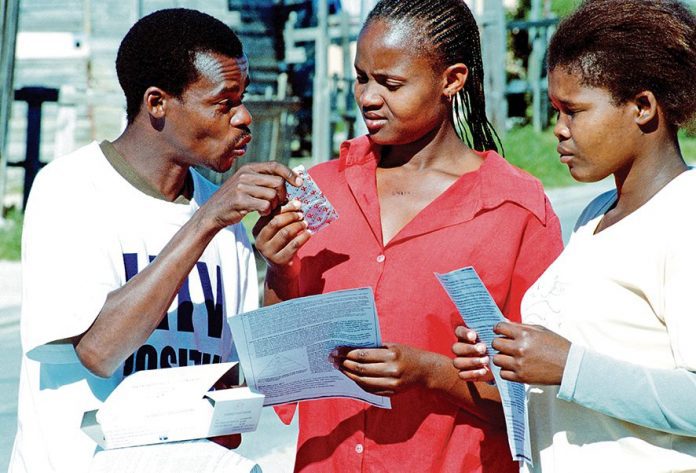Health experts have raised the alarm on the dramatic decrease in condom usage in the country, saying it complicates the war against the HIV epidemic.
This emerged during the release of the sixth South African National HIV Prevalence Incidence and Behaviour Survey this week in Durban.
The survey, a product of the Human Sciences Research Council (HSRC) supported by the US president’s emergency plan for Aids relief, was conducted in all nine provinces among participants of all ages from January 2022 to April 2023.
The survey collected information on key HIV indicators, social and behavioural factors, and access to medical interventions in the country.
Condom use moderate for both sexes
“Self-reported condom use at last sex among individuals aged 15 years and older with two or more sexual partners in the last year was moderate for both sexes among those aged 15-24 years, males (50.6%) and females (43.5%),” said professor Khangelani Zuma, executive director at HSRC and principal investigator of the survey.
“Among older adults aged 50 years and older, self-reported condom use was 27.9% [for men] and 29% among females.”
Zuma explained further: “The HIV epidemic continues to disproportionately affect different geographical regions and demographic groups, especially black Africans, women and youth.
“Although South Africa has made strides in controlling the HIV epidemic, increased and sustained investment in advocacy and behaviour change interventions are still needed to improve condom use, reduce risky sexual behaviour, and increase demand for medical male circumcision.”
HIV prevalence high among females
According to the study, the national HIV prevalence was 16.3% among people aged 15 years and older, translating to an estimate 7.4-million adults aged 15+ living with HIV.
HIV prevalence was nearly twice as high among females (20.3%), as compared to males (11.5%).
By race, HIV was highest among black Africans (19.8%) followed by coloureds (5.1%), white people (1.3%) and Indians (1.2%).
Sunday World reported last week that Mpumalanga, Eastern Cape, Free State and KwaZulu-Natal top the list on the number of people living with HIV.
The shocking results were revealed by the HSRC in Durban last week and formed part of its survey.
The survey is designed to provide information on national and sub-national progress towards the control of the HIV epidemic.



